
Robert L. Coleman, MD, FACOG, FACS, professor, Department of Gynecologic Oncology and Reproductive Medicine, The University of Texas MD Anderson Cancer Center, discusses advances made in the treatment of ovarian cancer.

Your AI-Trained Oncology Knowledge Connection!


Robert L. Coleman, MD, FACOG, FACS, professor, Department of Gynecologic Oncology and Reproductive Medicine, The University of Texas MD Anderson Cancer Center, discusses advances made in the treatment of ovarian cancer.
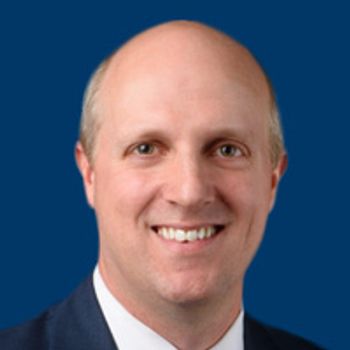
Clinical outcomes with the combination of encorafenib, binimetinib, and cetuximab exceed historic data in patients with BRAF V600E-mutant metastatic colorectal cancer.

For all the positive data associated with PARP inhibitors in patients with epithelial ovarian cancer who have known BRCA mutations and despite several agents winning FDA approval over the past few years, PARP inhibitors aren’t curing patients.
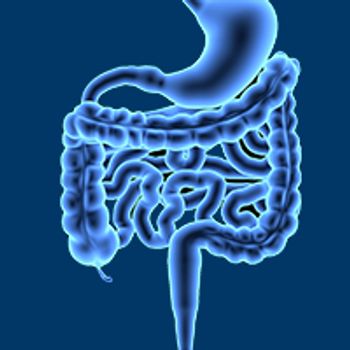
The oral multi-kinase inhibitor regorafenib extended progression-free survival in patients with metastatic or unresectable biliary tract cancer who were previously treated with gemcitabine and a platinum-based chemotherapy.

Shannon Westin, MD, discusses the evolving role of PARP inhibitors in ovarian cancer, novel investigational agents, and the importance of molecular testing.
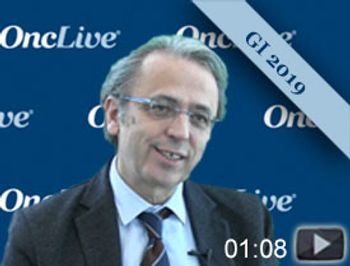
Josep M. Llovet, MD, PhD, discusses the results from the phase III REACH-2 study of ramucirumab as a second-line treatment of patients with advanced hepatocellular carcinoma.
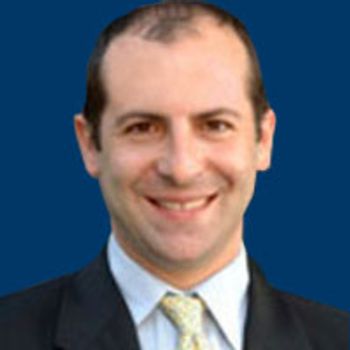
The combination of dabrafenib and trametinib induced responses in nearly half of patients with BRAF V600E–mutated biliary tract cancer who participated in a phase II basket trial that enrolled patients with BRAF V600E–mutated rare cancers.

The novel oral anticancer regimen known as SM-88, which consists of a tyrosine derivative, an mTOR inhibitor, a CYP3a4 inducer, and an oxidative stress catalyst, has promising efficacy with no meaningful toxicity in patients with metastatic pancreatic cancer who have progressed on at least 1 prior line of therapy.
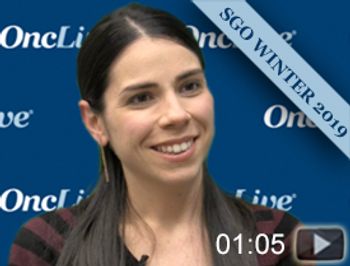
Adria Suarez Mora, MD, second-year fellow at UPMC Magee-Womens Hospital, discusses how sequential sampling of intraperitoneal fluid during chemotherapy help better define the immunogenic effects of the treatment.
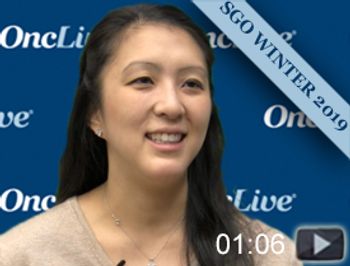
Kathleen G. Essel, MD, gynecologic oncology fellow at the University of Oklahoma Health Science Center with the Stephenson Cancer Center, discusses the benefits of using quantitative computed tomography image feature analysis to predict response to immune checkpoint inhibitors in patients with gynecologic cancers.

Carolyn Lefkowits, MD, gynecologic oncologist, and palliative care doctor, at the University of Colorado, addresses common misconceptions regarding palliative care integration.
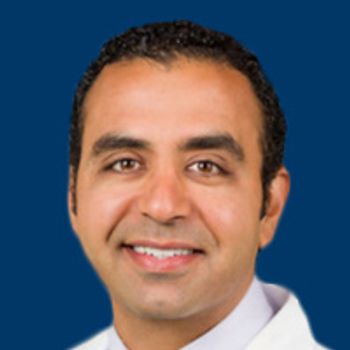
Targeted therapy is effectively established as an option for patients with ovarian cancers. However, beyond PARP inhibition in the BRCA-mutated or homologous recombination deficient population, questions remain about how to best treat these patients.

Daniela Molena, MD, discusses what she believes is the Achilles heel of endoscopic resection in patients with esophageal cancer.
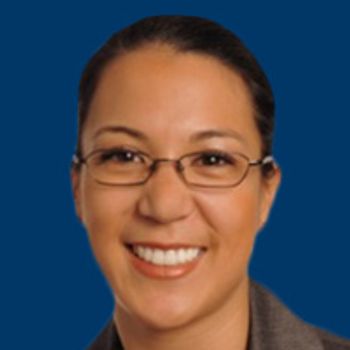
The prognosis for women with recurrent or metastatic cervical cancer after treatment failure is notoriously poor, but immunotherapy agents may offer longer survival for this population.

Overall survival in metastatic gastric/gastroesophageal junction cancer improved significantly in patients who received the combination therapy TAS-102, irrespective of prior gastrectomy.

Katherine Kurnit, MD, OBGYN oncology fellow at the University of Texas MD Anderson Cancer Center, compares the benefit of gastrointestinal-based versus gynecologic-based adjuvant chemotherapy regimens in patients with mucinous ovarian cancer.

Results from a recent retrospective study indicate that treatment with a gastrointestinal-based adjuvant chemotherapy regimen may be more beneficial than that of a gynecologic-based one in patients with mucinous ovarian cancer.
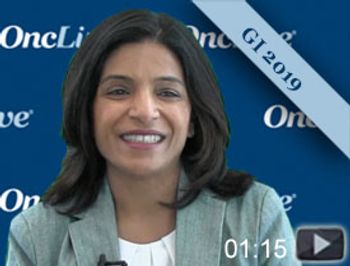
Rachna T. Shroff, MD, MS, discusses the importance of molecular profiling upon diagnosis in patients with cholangiocarcinoma.
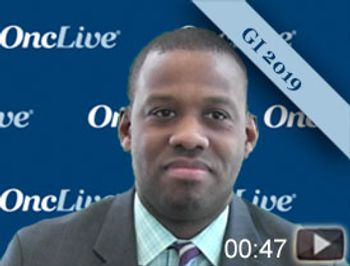
Marcus Noel, MD, discusses the data of SM-88 and how it will impact the treatment of patients with metastatic pancreatic cancer.

The combination of nivolumab and ramucirumab has activity in patients with previously treated advanced gastric adenocarcinoma, investigators reported at the 2019 Gastrointestinal Cancers Symposium.

Allyson J. Ocean, MD, discusses her experiences with SM-88 in patients with metastatic pancreatic cancer.

Genomic testing to guide treatment decisions for women with ovarian cancer is in its early days. However, as more platforms become commercially available, physicians will need to understand the similarities and differences between tests.

Two-thirds of patients with untreated metastatic HER2-positive esophagogastric adenocarcinoma remained free of disease progression at 6 months with a combination of pembrolizumab, trastuzumab, and chemotherapy.
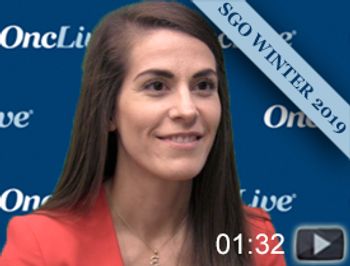
Eleftheria Kalogera, MD, MSc, instructor in Obstetrics and Gynecology, fellow in Gynecologic Oncology, in the department of Obstetrics and Gynecology, at Mayo Clinic College of Medicine, discusses the controversial topic of bowel preparation following minimally invasive or open hysterectomies.

Shannon N. Westin, MD, MPH, associate professor, The University of Texas MD Anderson Cancer Center, discusses advances made with PARP inhibitors in the ovarian cancer treatment paradigm.

Pembrolizumab was found to reduce the risk of death by 31% in patients with PD-L1–positive advanced or metastatic esophageal or esophageal junction carcinoma who progressed on standard therapy.
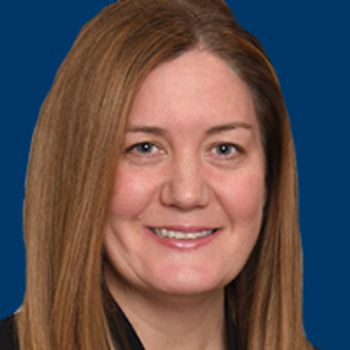
Several ongoing trials are examining combinations of PARP inhibitors and immunotherapy agents as frontline maintenance for patients with ovarian cancer.
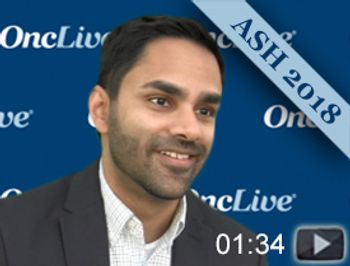
Krish Patel, MD, oncologist, Swedish Cancer Institute, discusses induction therapy with bendamustine and rituximab (Rituxan; BR) in the treatment of patients with mantle cell lymphoma (MCL).

Jordan Gauthier, MD, MSc, senior clinical research fellow, Fred Hutchinson Cancer Research Center, discusses the potential for chimeric antigen receptor T-cell therapy in the treatment of chronic lymphocytic leukemia.

Chemotherapy for breast cancer caused significantly more acute symptoms as compared with endocrine therapy, although the adverse effects of endocrine therapy increased over time.